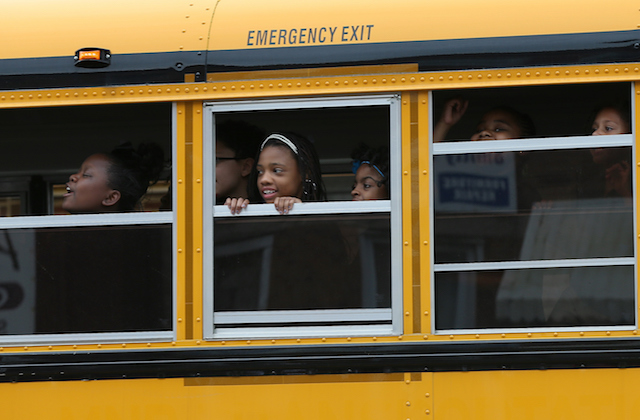In 2014, as part of our Life Cycles of Inequity series, Colorlines featured a pilot program at an Oakland, California, school that used a “whole school intervention approach” to mitigate the impact of poverty, disability and instability on the lives of children of color.
Yesterday (June 30), nonprofit mental health agency Seneca Family of Agencies (formerly Seneca Center) announced the results of that pilot program. The agency used a $3 million grant from the U.S. Department of Education to implement the “Unconditional Education” model in five Oakland schools—ASCEND (K-8), Cox Academy (K-5), Lazear Charter Academy (K-8), Learning without Limits (K-5) and Lighthouse Community Charter School (K-12)—during the 2014–2015 school year.
The model is anchored by the integration of academic, behavioral and social-emotional interventions, where all students get the help they need throughout the day from the educators they interact with most often. Students who need targeted help have access to specialized instruction, behavior support plans and therapy services, all with the goal of catching kids before they fall between the cracks and increasing the “academic performance and social-emotional well being of the most struggling students at our partner schools,” per Seneca’s website.
Key findings from the third-party program evaluation:
- Improvement in math performance across all UE [Unconditional Education] students
- Increase in math, reading, attendance and a decrease in suspension rates for special education students, an important subgroup because UE has a focus on improving the academic experience and outcomes of students with disabilities.
- Elevated performance for African-American students in math, attendance and suspension rates
- Better outcomes in math, reading, attendance and suspension for Latino students, an important finding because nearly 80 percent of UE students in Oakland schools are Latino
- Improved English language arts, reading, math and attendance for English Language Learners, crucial because many schools participating in the project serve high percentages of these students (nearly 50 percent of Oakland students)
“It’s gratifying that the findings show the UE model is effective in promoting an innovative, multi-tiered framework that integrates academic, behavioral and social emotional supports for students, while explicitly addressing and improving the overall school culture and climate for the entire school community,” Ken Berrick, CEO of Seneca Family of Agencies, said in a press release emailed to Colorlines.
Now, the nonprofit hopes to expand the program. It will use the positive findings from the pilot to apply for a $12 million grant that would pay for implementation in about 40 California schools.
